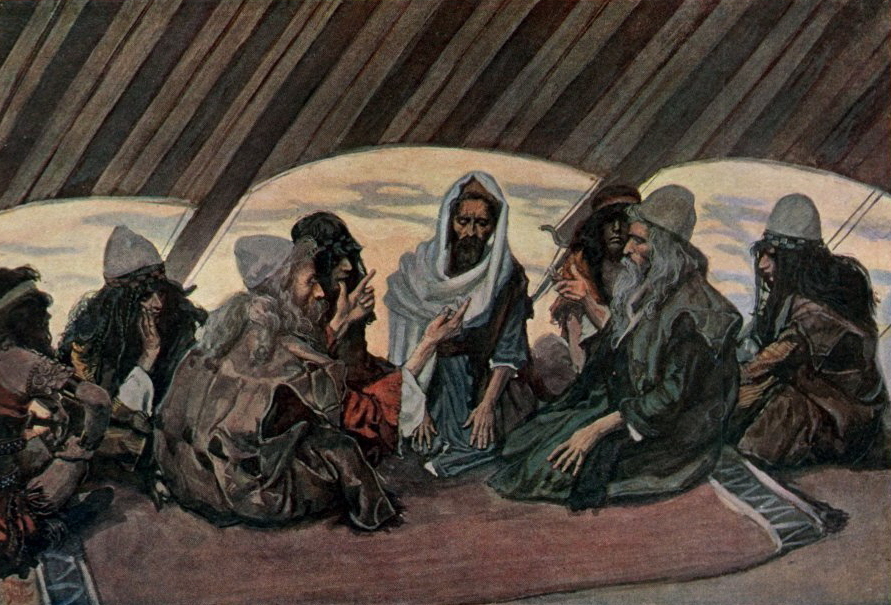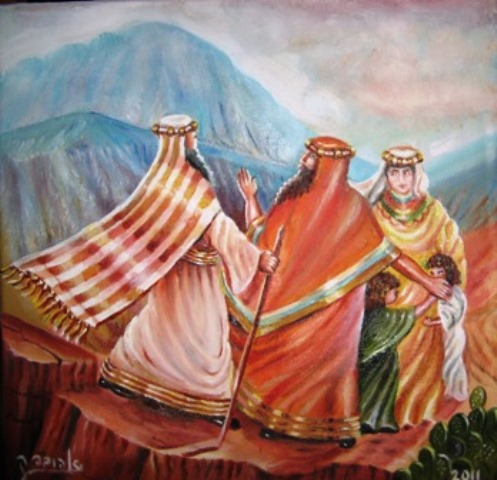
[For articles on the “Sabbath of Jethro" in Hebrew, click here]
Updated on February 7, 2023Rabbi Dr. Yossi Feintuch was born in Afula and holds a Ph.D. in American history from Emory University in Atlanta. He taught American history at Ben-Gurion University.
Author of the book US Policy on Jerusalem (JCCO).
He now serves as rabbi at the Jewish Center in central Oregon. (JCCO).
* * *
I love this week’s portion of Torah, Jethro. Even as it presents us with the very Constitution of our world of Mizvoth, namely, the Decalogue or the Ten Speakings (‘Aseret Ha-dibrot), the Rabbis chose to entitle this Parashah with the name of a non-Hebrew, Moses’ Midianite father-in-law. Perhaps, the Rabbis did so because they also believed that Jethro, a longtime pagan priest, chose the religion of Israel and converted; a beautiful way to welcome a Jew by choice. Though I am not convinced that Jethro did convert he’s definitely a man of substance, and of great values, and, I for one, would like to believe that this is why this unique and important Parashah is not named, for instance as the "Sabbath of Torah", or the “Sabbath of Sinai”, etc., but as the “Sabbath of Jethro".

Let’s take a quick look inside: Jethro comes to the Sinai desert to meet his son-in-law, Moses, who reunites with Zipporah and their two sons who had not joined him for the eventful year in Egypt that led to the Exodus. When Moses fills in Jethro on the travail-filled details of the year, and God’s beneficence with the Hebrews, Jethro demonstrates his earnest joy “for all the goodness which the Eternal had done to Israel”. He praises God in a way that no one before him had ever done: “Blessed be the Eternal who has delivered them [Israel] out of the hand of the Egyptians.” This opening would be enshrined henceforth in the Jewish liturgy as the “Call to Service”, a.k.a. "the Barchu".
Jethro proves himself as a person who truly rejoices with the blessings that descended on someone else, the Israelites; such an ability to celebrate the joys of others is praiseworthy. Presently, Jethro makes a theological statement which the Rabbis take as his actual conversion, (though no rabbi today would suffice with the mere reciting of such words as the sole criteria for admission into the Jewish fold): ”Now I know that the Eternal is greater than all gods”.(Does Jethro concede the existence of other gods, albeit secondary to the Eternal One? Indeed, didn’t we hear similar words even in last week’s Song of the Sealed by Moses himself: “Who is like You, among the gods... " O Eternal.
But Jethro, like a true “guest for an hour who sees all that is sour”, finds major flaws in the way that Moses, “A man of God” administered justice in the camp of Israel; his ascetic admonition of Moses is poignant, (though a man less humble than Moses would have taken deep personal umbrage): “What is this thing that you are doing to the people? Why do you sit alone, and all the people stand about you from morning unto evening…the thing which you are doing is not good. You will surely wear away, both you, and the people that is with you; for the thing is too heavy for you. You are unable to perform it all by yourself.” Jethro then proceeds on beyond merely criticizing Moses’ way, and he presents him with a plan on how to rectify Israel’s broken system of judgeship.
We recently saw Joseph informing the Pharaoh of the forthcoming drought and regional famine, yet proceeding on to suggest a plan how to prepare for this grim reality.
Indeed, it is one thing to rail against something (or someone), but it is much more constructive and proper to suggest how to revamp the “ailing” system. And Jethro does this very thing. Moses deserves great kudos too for neither dismissing Jethro’s ideas, and for actually hastening to follow up on them, and bring them to quick activation. But this Shabbat is Jethro’s and he deserves our huzzahs.





